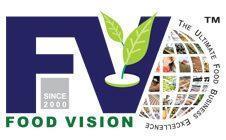Interactive Training Workshop on
Principle of Internal Auditing
Course Qualification
This course is intended to qualify internal auditors to conduct effective internal audits of an organization’s quality and food safety management system.
The training meets the applicable internal auditor’s training requirements under all GFSI Benchmarked Food Safety Schemes e.g., SQF, BRC, IFS, and FSSC 22000.

Upcoming events
Principle of Internal Auditing
Conducting Internal Audits is one of the most important elements of all GFSI Benchmarked Food Safety schemes and Standards. Its required to know effectiveness of implementation and compliance.
Many companies face challenges in achieving required results and successfully manage their continuous improvement strive that at times results in shocking results in external certification and reassessment audits. The learning in this course ensures that internal auditing individual and teams learn how to conduct internal audit for optimum results and success in achieving organizational goals.


This training workshop offers insight and skill to find issues before these are highlighted through internal and external product failures, customer complaints and, external audits (e.g., customer audits, certification and reassessment audits) failures. This training worship helps individuals and team manage deviations, right approaches to find root cause (s) and suggest remedies to avoid recurrence.
This course is applicable to all GFSI Benchmarked Food Safety Schemes e.g., SQF, BRC, IFS, and FSSC 22000.
Learning Benefits
At the end of the training and learning interaction, you will be able to:
- Distinguish between inspectors, reviewers, verifiers.
- Distinguish between trained internal auditors and competent internal auditors.
- Why internal is different than inspecting and verification?
- Why Internal Audit fails?
- Why it’s important for internal auditors to be competent and independent for better results?
- What is the value of an objective evidence?


- Value and role of internal auditing in maintaining and improving the food safety system
- How to write a good statement of non-compliance?
- How to manage personal biases in internal auditing?
- Manage the corrective and preventive action process for continual improvement
- Learn many other best practice to make internal audit a strong tool for organization effectiveness


